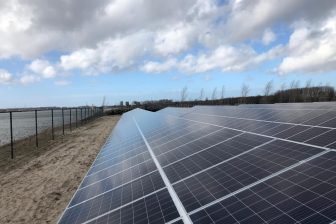
COP21 – Rapport: ‘Klimaatbeloftes grote industrielanden zijn loos’
13 november 2015 – Op zondag 15 november en maandag 16 november wordt de jaarlijkse G20-top gehouden, dit keer in Turkije. Een Brits rapport maakt duidelijk dat de twintig machtigste economieën in de wereld weinig investeren in hernieuwbare energie en veel meer in fossiel.
Zo vlak vóór COP21 is het een voor de grote industrielanden uiterst ongemakkelijk rapport, met een harde titel: ‘Empty promises: G20 subsidies to oil, gas and coal production’.
Het Britse Overseas Development Institute (ODI) heeft, samen met het Amerikaanse onderzoeksbureau Oil Change International, de klimaatinspanningen van de G20 onderzocht en komt tot de volgende conclusies:
- De G20 geven jaarlijks ¢452 miljard uit aan de ondersteuning van energieproductie met fossiele brandstoffen.
- De $452 miljard bestaat uit:
$ 77 miljard aan directe subsidies en belastingvoordelen,
$ 286 miljard aan investeringen door staatsondernemingen en
$ 98 miljard aan leningen van staatsbanken. - De G20 ondermijnen feitelijk de vermindering van CO2-uitstoot.
- Ze investeren vier keer zoveel in fossiel als alle subsidies van de hele wereld voor hernieuwbare energie ($121 miljard dollar).
- En dat terwijl 75% van de nu nog resterende fossiele reserves in de grond moeten blijven.
- De G20 investeert zelfs veel meer in steenkool dan de 20 grootste steenkoolondernemingen samen zelf doen (G20 $19 miljard tegenover $10 miljard van de 20 grootste steenkoolondernemingen).
Het rapport is opgesteld op basis van openbare cijfers en is een vervolg op een rapport uit 2014 (‘The fossil fuel bailout: G20 subsidies to oil, gas and coal exploration’). Het rapport zet forse vraagtekens bij het commitment van de grootste industrielanden bij een serieuze aanpak van de klimaatverandering..
 Uit de Executive Summary van ‘Empty promises: G20 subsidies to oil, gas and coal production’.
Uit de Executive Summary van ‘Empty promises: G20 subsidies to oil, gas and coal production’.
‘(…) G20 country governments are providing $452 billion a year in subsidies for the production
of fossil fuels. Their continued support for fossil fuel production marries bad economics with potentially disastrous consequences for the climate. In effect, governments are propping up the production of oil, gas and coal, most of which can never be used if the world is to avoid dangerous climate change. It is tantamount to G20 governments allowing fossil fuel producers to undermine national climate commitments, while paying them for the privilege.
This report documents, for the first time, the scale and structure of fossil fuel production subsidies in the G20 countries. The evidence points to a publicly financed bailout for some of the world’s largest, most carbon-intensive and polluting companies.
It finds that, by providing subsidies for fossil fuel production, the G20 countries are creating a ‘lose-lose’ scenario. They are pouring large amounts of finance into uneconomic, high-carbon assets that cannot be exploited without driving the planet far beyond the internationally agreed target of limiting global temperature increases to no more than 2oC. At the same time, they are diverting investment from economic low-carbon alternatives such as solar, wind and hydro-power.
The scale of G20 fossil fuel production subsidies calls into question the commitment of governments to an ambitious deal on climate change. Several countries have scaled up their pledges to reduce greenhouse gas emissions, but continued subsidies for fossil fuel production raise serious concerns about these pledges and could undermine the prospects for an ambitious climate deal. As well as phasing out national subsidies, G20 governments have a tremendous opportunity to meet the climate challenge by shifting the investment of state-owned enterprises and public finance away from fossil fuel production, towards clean energy. It is one thing, however, for nations to make pledges, it is another for them to take the most important and necessary step: withdrawing their support from the fossil fuel industry. (…)’
Het rapport komt met vijf aanbevelingen om de industrielanden aan hun beloftes te houden.
Uit het rapport
- Adopt strict timelines for the phase-out of fossil fuel production subsidies (and remaining subsidies to consumption) with country-specific and measurable outcomes. The first step would be to eliminate all subsidies to exploration and coal by 2020.
- Increase transparency through a publicly disclosed, consistent reporting scheme for all national subsidies for fossil fuels, strengthening the existing inventory created by the Organisation for Economic Co-operation and Development (OECD) and expanding it to include all countries (using the OECD’s existing model for tracking agricultural subsidies).
- Increase the transparency of reporting on investment in, and finance for, fossil fuels by state-owned enterprises and majority publicly owned financial institutions.
- Work closely with international institutions and processes, such as the G20 and Asia-Pacific Economic Cooperation (APEC), the OECD, the United Nations Framework Convention on Climate Change (UNFCCC) and the Sustainable Development Goals (SDGs) to eliminate any incentives for fossil fuel production and to monitor reforms so that no new incentives are established.
- Shift subsidies from fossil fuel production to support wider public goods, including through support for the transition to low-carbon energy systems and universal energy access.
Korte video-samenvatting rapport (ruim 1 minuut)
.
Bronnen
ODI, rapport, 11 november 2015: ‘Empty promises: G20 subsidies to oil, gas and coal production’ (pdf, 103 pag.)
Executive summary: ‘Empty Promises’ (pdf, 7 pag.)
ODI, bericht over ‘Empty Promises’, november 2015: Empty promises: G20 subsidies to oil, gas and coal production
Zie ook
FluxEnergie, 13 november 2015: COP21 – Eerste reacties op rapport “Loze beloftes’



